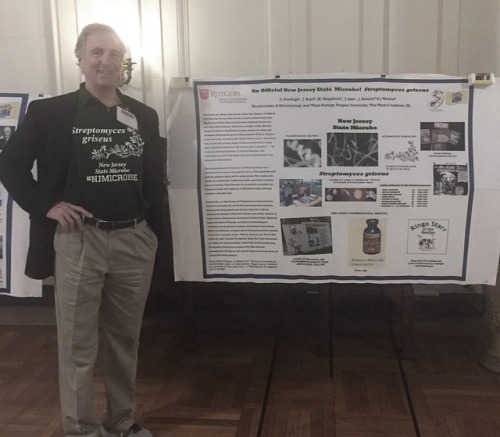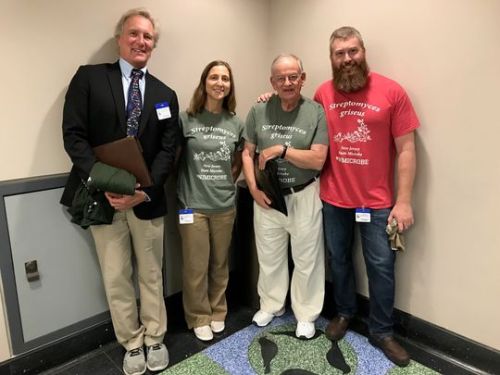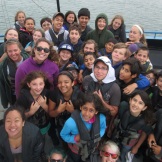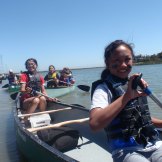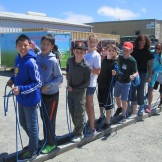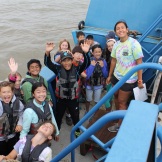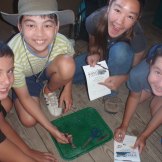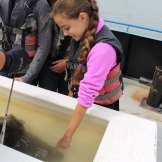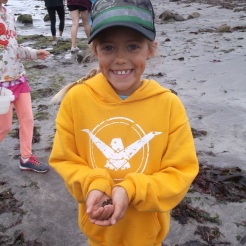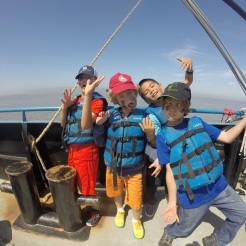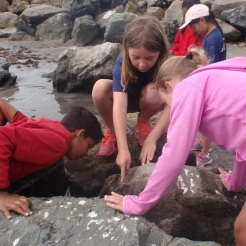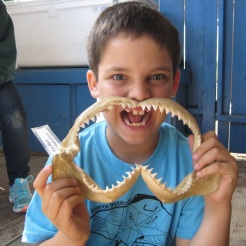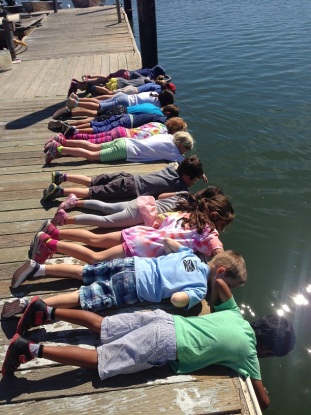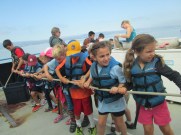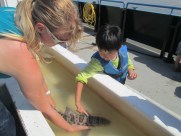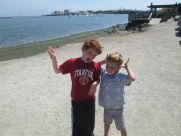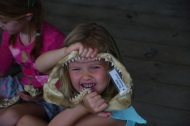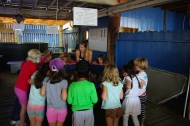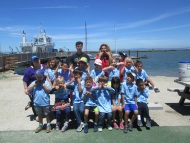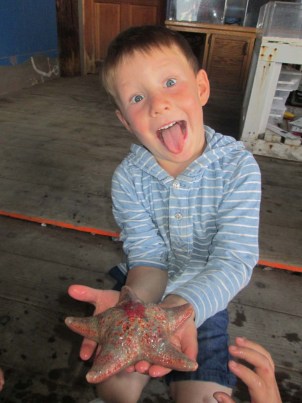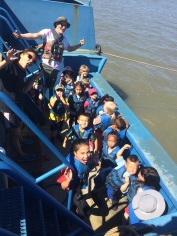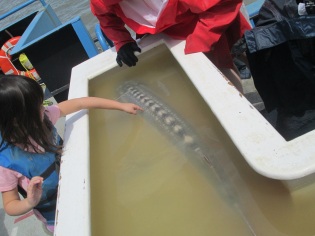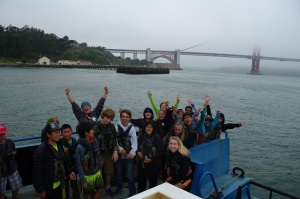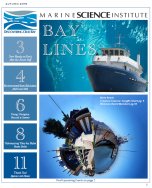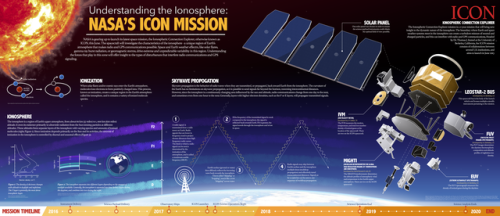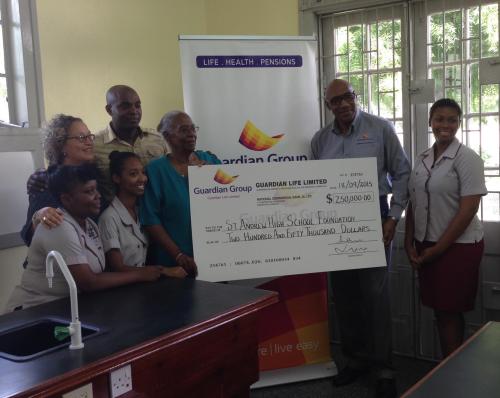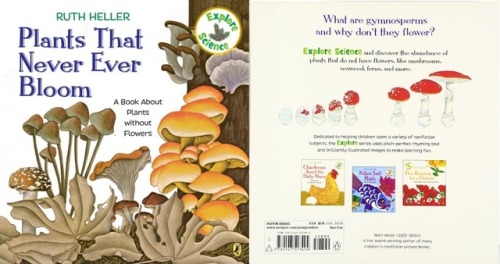#science education
Microbe Talk at The Library.
This was a lot of fun. I spoke about he new book (The Small Guide to Small Things) and The New Jersey State Microbe. The audience had students, teachers, nurses, professors, and people from the general public.
Hey, get the book! https://tinyurl.com/Warhol-Small-Guide . It costs less than a burger and a Coke, it lasts longer, and is more fun!
Post link
Microbiology at the NJ Historical Commission Forum
Monmouth University hosted the NJ History Forum where I talked about the great history of New Jersey and Microbiology on behalf of my colleagues at Rutgers.
One presentation is titled The 75th Anniversary of the Discovery of Streptomycin (upcoming in 2019); the other is titled An Official New Jersey State Microbe! Streptomyces griseus. The revolutionary antibiotic streptomycin was discovered as a product the microbe Streptomyces griseus isolated from New Jersey soil.
Authors of the presentations are Douglas Eveleigh, Jeff Boyd, Jessica Lisa, Max Haagblom, and John Warhol.
To learn more about microbiology, check out the book:https://tinyurl.com/Warhol-Small-Guide. It costs less than a burger and a Coke, it lasts longer, and is more fun!
Post link
New Jersey State Microbe Advocates
This is part of the team that worked hard on getting recognition for microbiology in New Jersey.
We are actually standing on a mosaic that depicts several of the Official State Symbols of New Jersey, only the Gold Finch shows in this photo. Everyone entering the State House sees these icons. Symbolism is important!
Here’s a link to sews article: https://www.app.com/story/news/local/new-jersey/2018/07/26/streptomyces-griseus-bacteria-could-become-njs-official-state-microbe/846292002/
Twitter: @WarholScience
Amazing Microbiology book: https://tinyurl.com/Warhol-Small-Guide
#NJmicrobe
Post link
The New Jersey State Microbe moves ahead!
We have been getting a lot of positive press and electronic media following the unanimous vote of the New Jersey Senate on July 27. It’s nice to see an article in an actual newspaper! This ran in the Sunday Asbury Park Press on page 2 on July 29, 2018.
#NJmicrobe
For amazing microbiology: https://tinyurl.com/Warhol-Small-Guide
Twitter: @WarholScience
Post link
The Underwater Investigator camp for entering 6th-8th graders is a week-long program that is sure to inspire curiosity about the various fields within marine science. This summer campers will explore a different marine science field each day, including marine ecology and conservation, biodiversity, physical and biological oceanography, biomimicry, and will even learn what it takes to be an aquarist. They will practice scientific data collection on land by using real scientific equipment and they will also create their own quadrat, a research tool used to collect data to survey the biodiversity and health of a habitat. Campers will also spend a fun day canoeing to nearby Bair Island where they will investigate mud-dwelling invertebrates, examine the hydrology of the slough, and check out native and non-native plants that make this wetland such a unique habitat.
Their camp week culminates in a fun 2-day-long trip aboard our research vessel, and campers and staff even sleep aboard the boat! Campers will board the boat at 9am on the Thursday of their camp week and participate in various marine science studies as they venture to Sausalito for field trip activities. They will then have free time playing games and exploring the area while we barbecue dinner. Campers will then board the boat and watch a movie as we head to the Marina Bay Yacht Harbor for the overnight portion. On Friday campers will use scientific equipment to sample fish from the Bay, examine invertebrates from the mud, and study plankton underneath a microscope. This fun-filled week is packed with action!
Currently all of the Underwater Investigator sessions are full but campers can still be registered for the waitlists.
UNDERWATER INVESTIGATOR SCHEDULE:
June 20-24
July 11-15
July 25-29
Marine Camp 2016: Underwater Investigator Sneak Peak - Marine science for middle schoolers! The Underwater Investigator camp for entering 6th-8th graders is a week-long program that is sure to inspire curiosity about the various fields within marine science.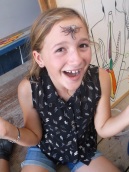

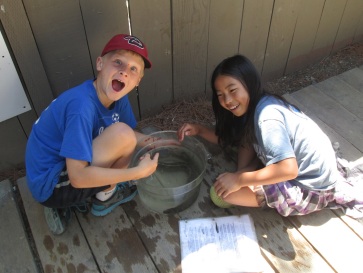
Our Naturalist program is for entering 4th and 5th graders who have attended an Explorers camp. The Naturalist campers will dive deeper into life and processes of the San Francisco Bay and Pacific coast, learn research methods and discuss current issues in our world’s marine ecosystems. By learning how to be naturalists, these devoted marine scientists will become familiar with the skills and passion needed to be a life scientist during their fast-paced camp week.
Naturalists have an amazing and fun week ahead of them. Activities include:
- Preserved sea star dissection to examine the water vascular system.
- Creating a quadrat, a tool used to quantify the number of species and amount of new species within a designated area. This tool is essential for studying biodiversity and the health of an area. Campers will keep the quadrat they create!
- Learning how to take fish data by identifying and taking measurements on the fish caught. This data goes into a database which other organizations have access to.
- Examining Phyla and the features of different groups of animals which made scientists group them together.
… and much more!
All Naturalist camps (except for the shortened July 5th camp week) have:
- 2 days at our site to study live animals from our aquarium and to engage in other science projects both indoors and outside
- 2 field trips (reached by school bus) that feature different habitats (shortened July 5th week has 1 field trip)
- 1 day aboard our ship that includes fishing, studying plankton, sampling mud, and learning about nautical navigation
- 2 staff plus a volunteer for every 15 campers
- Flexible curriculum that engages multiple learning styles
Naturalist campers will be visiting two field trip sites: the Gulf of the Farallones National Marine Sanctuary Visitor Center and the Pescadero Marsh Natural Preserve. On both of these excursions campers will learn about the habitats, perform experiments to better understand the conditions of each location, and examine animal life.
There are 4 weeks of Naturalist camp available during the summer. If your entering 4th or 5th grade camper has attended an Explorer camp during a previous summer we encourage them to join this fast-paced program. Campers also have the option of being in an Explorer camp earlier in the summer and signing up for Naturalists later on to compound the information and dive deeper into marine science.
Join us for this awesome experience as campers dive into marine science and explore our local marine habitats. Camps run Monday through Friday, 8:30am-3pm with extended care available until 5:30pm.
NATURALIST SCHEDULE:
July 5-8 *special overnight opportunity available
July 18-22
August 1-5
August 8-12
*We have a special option for the shortened 4th of July camp week of Naturalists: an optional overnight is available on the Thursday (July 7th) of camp for an additional $50. Campers will bring their overnight materials (clothes, sleeping bags, etc) and we will camp in the MSC. Food will be provided. Campers will watch a marine science themed video TBD, tow for night plankton and examine under a microscope, learn how scientists navigated using the stars, and more!
Marine Camp 2016: Naturalist Sneak Peak. Returning campers dive deeper into marine science. Our Naturalist program is for entering 4th and 5th graders who have attended an Explorers camp. The Naturalist campers will dive deeper into life and processes of the San Francisco Bay and Pacific coast, learn research methods and discuss current issues in our world’s marine ecosystems.Entering 2nd-5th graders have two camp options: Wetland Explorers (discussed in a blog from 2 weeks ago found HERE) or Ocean Explorers, a camp of similar structure but focusing on a different habitat. Ocean Explorers camp is about “whole world’s ocean” and how we are connected to it. Campers will learn about various habitats such as the highly productive kelp forest, the harsh sandy beach, the ever-changing rocky shore and the dramatic open ocean which is strongly characterized by physical factors. Diverse populations of marine algae and animals are found along the rocky coast as well as in the open ocean. Wind, sunlight, tides and other physical factors create a complex environment, and the animals that are a part of northern California’s coastal community have incredible adaptations for survival.
Ocean Explorer camp, as well as MSI’s other camp options, is geared toward California’s science standards taught during the school year, and is fun and interactive. Hands-on lessons, animal touching, games, crafts, songs and more are themed toward the material to engage campers to embrace the communities along our nearby coastline.
All Ocean Explorer camps have:
- 2 days at our site to study live animals from our aquarium and to engage in other science projects both indoors and outside
- 2 field trips (reached by school bus) that feature different habitats
- 1 day aboard our ship that includes fishing, studying plankton, sampling mud, and learning about nautical navigation
- 2 staff plus a volunteer for every 15 campers
- Flexible curriculum that engages multiple learning styles
Campers will be going on two field trips during their week at camp: Bean Hollow State Beach and the Gulf of the Farallones National Marine Sanctuary Visitor Center. Bean Hollow (along the coast about 17 miles south of Half Moon Bay) offers ample opportunity for tide pool exploration and other activities. Campers will be able to find hermit crabs, black turban snails, sea anemones, purple shore crabs, sea stars with 5-6 arms, and more! This region also offers a coastal walk where campers can spot common native and non-native coastal plants, and even find a harbor seal haul-out where these marine mammals are commonly seen resting on the rocks.
The second field trip is a visit to the Gulf of the Farallones National Marine Sanctuary Visitor Center in San Francisco. Located near Crissy Field, this facility has been transformed from old Coast Guard Buildings and is found along the beach. Campers will explore the region looking for crabs along the shoreline and taking part in crab population surveys. They will also drag a plankton net through the water and compare the coastal plankton to that found in the south Bay at our facility. Campers will also take part in a marine debris project with the Ocean Conservancy; they will contribute to a survey in which they will account for and tally the number of trash items found. The data will be entered into a database and submitted to the Ocean Conservancy, which will be compiled and become a part of a report for the city of San Francisco and contribute to the global project placed by the Ocean Conservancy.
Join us for a week full of fun, lessons, games, and interactive activities that are sure to excite your camper and inspire their love for the life within the California coastline and open ocean. Camps run Monday through Friday, 8:30am-3pm with extended care available until 5:30pm. Camp July 5th-8th still has spots available!
OCEAN EXPLORER SCHEDULE:
June 13-17 – FULL
June 20-24 – FULL
June 27-July 1 – FULL
July 5-8
July 11-15 – FULL
July 18-22 – FULL
July 25-29 – FULL
August 1-5 – FULL
August 8-12 – FULL
Marine Camp 2016: Ocean Explorers Sneak Peak. Learn about California’s coastal marine life! Entering 2nd-5th graders have two camp options: Wetland Explorers (discussed in a blog from 2 weeks ago found…Opportunities are abound in the Wetland Explorer camp for 2nd-5th graders. This camp explorers our local habitats and the animals that inhabit our incredible backyard. Campers will explore the life found in our local estuary, marshes, sloughs and mudflats. With Bair Island Ecological Reserve across the waterway from Marine Science Institute, campers will be inspired and curious about the vast array of wildlife this area offers. This shoreline habitat makes the Bay ecosystem healthier by providing homes for diverse animals that live only in this habitat, migratory birds that use the marsh as a pit-stop along their route, and by acting as a sponge by filtering pollutants and heavy metals from run-off.
During their week learning about the San Francisco Bay’s wetlands, Wetland Explorers will discover the animal life that calls our estuarine habitat home. This camp is geared toward California’s science standards taught during the school year, and is fun and interactive. Campers will touch animals and participate in hands-on activities, games, crafts and songs tailored toward the material.
All Wetland Explorer camps have:
- 2 days at our site to study live animals from our aquarium and to engage in other science projects both indoors and outside
- 2 field trips (reached by school bus) that feature different habitats
- 1 day aboard our ship that includes fishing, studying plankton, sampling mud, and learning about nautical navigation
- 2 staff plus a volunteer for every 15 campers
- Flexible curriculum that engages multiple learning styles
The first field trip is to the San Francisco Maritime National Historical Park in San Francisco. Here campers will tour the only square-rigged ship left in the San Francisco Bay area, the Balclutha. Built in 1886, the Balclutha was a cargo ship that traveled around the world and now resides in San Francisco as a National Historic Landmark. Campers will learn sea shanties and learn how the San Francisco Bay became one of the world’s largest and most important seaports. Campers will also explore birdlife and invertebrates through activities with binoculars and on the docks at the aquatic park. Kelp crabs, giant bay anemones and nudibranchs as large as your hand will fascinate Wetland Explorers as they compare the invertebrate life in this North Bay area with that found on our docks in the South Bay.
The second field trip is to the Pescadero Marsh Natural Preserve, which includes the only extensive wetland along the coast of the San Francisco peninsula. This area hosts extensive flat hiking trails where campers will utilize binoculars and bird field guides to spot some of the 60 species of birds that nest in the marsh (and 200 that fly through it!) and the importance of the marsh as a breakpoint along the Pacific Flyway. They will also use field guides to identify and differentiate between native and non-native plant species. We can even spot harbor seals as they surface, or leopard shark fins as they search along the bottom for food during low tide!
The Wetland Explorer camp is an excellent option for young scientists to learn about our nearby marine habitats. All Instructors have a degree in Marine Biology, Environmental Science, Education or a related field, and many have field research experience and will emphasize different aspects of the curriculum. Each instructor has their own unique teaching style so no two weeks of camp are the same.
Join us for this unique experience as campers explore the science that is practically in their backyard. Camps run Monday through Friday, 8:30am-3pm with extended care available until 5:30pm.
WETLAND EXPLORER SCHEDULE:
June 13-17
June 20-24
June 27-July 1
July 11-15
July 18-22
July 25-29
Marine Camp 2016: Wetland Explorers Sneak Peak. See what’s in store for our campers! Opportunities are abound in the Wetland Explorer camp for 2nd-5th graders. This camp explorers our local habitats and the animals that inhabit our incredible backyard.Campers entering Kindergarten through 1st grade have an exhilarating week ahead of them as Plankton Pioneers!
This camp introduces your budding biologist to the wonders of our amazing local marine life, both in the San Francisco Bay and in our world’s ocean. They will experience the animals and habitats first hand through a variety of fun-filled interactive activities. Campers will learn about and touch live animals in a safe and exciting environment, and participate in themed crafts, games, songs and stories. These activities spark excitement about nature and will inspire campers to appreciate our local life!
Each day of camp has a different theme, enabling campers to explore different aspects of marine science. Plankton Pioneers will also create fun crafts, including decorating their own reusable tote bag with marine animal designs and creating their own jelly to play with. They will also spend a day on board our 90’ research vessel, surveying animals from the San Francisco Bay! This ship was designed specifically for teaching programs in the San Francisco Bay. Join us as we go fishing, survey mud and invertebrates, study plankton, sharks, and so much more!
Camps run Monday through Friday select weeks from 8:30am-1pm. Extended care is available until 5:30pm.
Camp availability:
June 13-17 – FULL
June 27-July 1 – AVAILABLE
July 5-8 – AVAILABLE
August 1-5 – FULL
August 8-12 – FULL
Space is available – join the Plankton Pioneers today!
Marine Camp 2016: Plankton Pioneers Sneak Peak Campers entering Kindergarten through 1st grade have an exhilarating week ahead of them as Plankton Pioneers!Common Facts:
Scientific name – Stenella longirostris
Diet – Small fish and squid
Size – 6-7 feet, 130-170 pounds
Lifespan – up to 20 years
Most of us are familiar with dolphins—the fun and playful porpoises that can often be seen leaping out of the water to socialize with each other and with humans. One type of dolphin that you may not be as familiar with is the Spinner Dolphin.
Spinner dolphins are named after their above the water theatrics—they love to leap out of the water and spin a few times on their body axis while doing so. Some can spin as many as four times around in one leap.
These dolphins love to stay together and are usually found in huge groups. They do their hunting at night, feeding mainly on mid-water fishes and deep-water squid, and then they rest during the day time.
Spinner dolphins can been found all over the world, mainly in tropical and subtropical oceans. For some reason, Spinners tend to follow groups of Yellowfin Tuna around. Because of this, fishermen seeking Tuna will often track the dolphins in order to get to them. Oftentimes, the dolphins are caught in the nets with the tuna, and because of this, their population is decreasing.
Thankfully, “Fishing methods for tuna imported into the U.S. under the Dophin-Safe program do not allow fishing practices, such as setting on dolphins.” The Spinner Dolphin population is at a stable number right now.
So if you are ever in a warm and tropical area, close to the ocean, stay alert to see if you can see any Spinner Dolphins. If you do, you are in for a show!
Sources:http://acsonline.org/fact-sheets/spinner-dolphin/
http://www.nmfs.noaa.gov/pr/species/mammals/cetaceans/spinnerdolphin.htm
Written by: Kari Shirley, intern
Meet the species of dolphin that REALLY knows how to have fun! Common Facts: Scientific name - Stenella longirostris Diet - Small fish and squid Size - 6-7 feet, 130-170 pounds…Wanted: Engaging, high-energy, compassionate and fun instructors and counselors to lead our summer camp! CLICK HERE to apply and join the team.
Marine Science Camp is proud to have a passionate and fun team of instructors, counselors and volunteers each summer. The foundation of this team of educators and leaders is not only their knowledge of marine science, but also their ability to inspire campers. They spark an appreciation for marine science and local habitats while promoting friendship, teamwork, and curiosity.
Our qualified team of highly motivated instructors, counselors and volunteers are outside with the campers every day. Instructors and counselors facilitate hands-on learning and teambuilding in a safe and fun environment. They are CPR and First Aid certified, background checked, and undergo an extensive 2 week training period prior to camp.
Instructors have a minimum of a bachelor’s degree in fields varying from biology and marine science to education and environmental studies or other similar fields. Most teach with MSI throughout the year; they are dedicated, experienced and have taught a variety of programs to grades from pre-kindergarten through college. Instructors at Marine Camp lead camper learning, supervise campers and are primarily in charge of safety. They are the crew of our 90 foot research vessel and undergo extensive training and regular safety drills to comply with Coast Guard safety standards. Many have field research experience and relate it to topics learned at camp. Our fantastic Instructors are role models who inspire and share their passion for marine science with campers of all ages.
Marine Camp Counselors are in college or have already received their degrees. They work closely with the Instructors helping with activities, assist in overall supervision and aid in providing an understanding of marine topics. Many of our counselors are pursuing degrees in the sciences and are interested in marine science or education as a career. Marine Camp is an excellent summer opportunity for them to get first-hand experience.
Rounding out the summer staff are our amazing volunteers, who are a crucial part of the summertime fun. They act as an extra set of eyes, ears and hands, and they also act as role models to ensure our campers are staying safe and having fun. Volunteers join staff and campers for every activity and field trip. They are buddies, helpers, and friends to each and every camper—especially the campers that benefit from having just a little extra help making friends and getting involved. Volunteers join us for different amounts of time—for just one week to almost the whole summer! Some of our campers have become volunteers, who later become Counselors and Instructors! We are so grateful to have these inspiring and energetic people as a part of our team. CLICK HERE to learn more about volunteer opportunities during the summer and beyond.
If YOU match any of these descriptions, CLICK HERE to learn more and apply. I look forward to greeting new and old members onto the team.
Marine Camp 2016: Wanted – Enthusiastic and Fun Camp Staff Wanted: Engaging, high-energy, compassionate and fun instructors and counselors to lead our summer camp! CLICK HERE…
Summer planning is in full swing! It is that time of year to begin thinking about your family’s summer activities. Summer camps of all kinds hold a myriad of opportunities for growth, making new friends, learning and fun. At the Marine Science Institute’s Marine Camp in Redwood City, CA, countless marine science themed activities await campers. Our knowledgeable staff are full-time educators and marine biologists with a genuine passion for sharing the wonders of nature with others. Whether your camper is learning about coastal California or the San Francisco Bay marine life, they will be amazed by the variety of creatures found in our own backyard! Marine Camp has several camps to choose from over the duration of the summer:
Plankton Pioneers is for our youngest campers (entering grades K-1st), and their week is full of exciting activities that introduce campers to different aspects of marine science. Each day at our site is themed with hands-on activities, animal touching and a fun craft that is related to the theme of the day. During one camp day, campers are true marine biologists aboard our Research Vessel and practice animal collecting from the bay!
Entering grades 2nd-5th have two options of Explorers camps: Wetland Explorers and Ocean Explorers. These camps are similar in structure but delve into two different habitats. They were designed so that our dedicated marine scientists could attend 2 weeks of camp without much repetition in curriculum. While Wetland Explorers focuses on the San Francisco Bay’s animals and habitats including marshes, sloughs and mudflats, the Ocean Explorers camp focuses on coastal California and the world ocean. Both camps explore how we are connected to those habitats and how we have a direct impact on their health. The Explorer camps both have 2 days at our site, 2 different field trips, and a day aboard our Research Vessel.
Our Naturalist program (entering 4th-5th grade) is for campers who have previously attended one of the Explorers camps and are ready to dive a little deeper into marine science and research methods. Campers will learn how to be naturalists and will focus on aspects within both the wetland and oceanic habitats. This fast-paced camp has 2 days at our site, 2 field trips and a trip aboard our Research Vessel to take students behind the scenes as marine biologists.
Underwater Investigators is for campers entering 6th-8th grades and involves much scientific investigation. Campers explore the varied fields within marine science including marine ecology, biodiversity, biological oceanography and more by using scientific data collection and analysis on land, boat and canoe. Our middle school age camp even has an overnight aboard the Research Vessel!
Our final camp option occurs just one week of the summer. The Project Discovery campers (entering 9th-12th grades) have an action packed week starting with animal sampling and data collection aboard the Research Vessel, followed by 4 days of camping along the coastline. This camp is geared towards high school students who want to study marine biology in the field.
Join us this summer for new field trips, activities, and friends! Week-long sessions are available June 13 – August 12. Registration begins Monday February 1 at 8 am.
| CAMP | PRICE | ENTERING GRADES | STARTING DATES (all camps run Mon-Fri – camp is closed for July 4th holiday, and that week will be prorated) |
| Plankton Pioneers | $415 | K-1 | June 13, June 27, July 5, August 1, August 8 |
| Wetland Explorers | $500 | 2-5 | June 13, June 20, June 27, July 11, July 18, July 25 |
| Ocean Explorers | $500 | 2-5 | June 13, June 20, June 27, July 5, July 11, July 18, July 25, August 1, August 8 |
| Naturalists | $550 | 4-5 (for returning campers only) | July 5, July 18, August 1, August 8 |
| Underwater Investigators | $650 | 6-8 | June 20, July 11, July 25 |
| Project Discovery | $1300 | 9-12 | July 18 |
Summer Marine Science Camp is just around the corner. To learn more please visit our webpage at http://www.sfbaymsi.org/marinecamp or contact Alex, the Marine Camp Manager at 650-364-2760 x19 or e-mail [email protected].
Share this article, and the opportunity to register with your friends and family.





Marine Science Institute is a tax-exempt 501©(3)not for profitorganization
©2016. All Rights Reserved
Check out options to support future scientists at Marine Science Camp this summer.
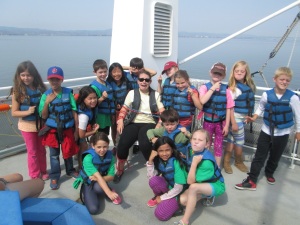
Fun foggy day on the Bay with our middle school campers
The experience of summer camp offers profound positive effects that last for years. It is a special type of community where kids come together to have fun and develop a level of independence resulting from exploring adventures away from home. They make new friends, learn away from the classroom and keep their minds and bodies active while…
Jodi Stewart: School Programs Coordinator
Jodi received her B.S. in Biology from University of Wisconsin at Whitewater, and a B.S. Honours in Environmental Sciences from Deakin University, Australia. She joined MSI as an instructor in 2013. Jodi was drawn to MSI’s broad reach of students in the Bay Area and the educational programs aboard the R/V Robert G. Brownlee. She is the primary contact for teachers, schedules MSI programs, and updates and maintains our database.
Melanie Kimbel: Advancement Director
Melanie has built long career in the nonprofit world working primarily for environmental initiatives at organizations including San Francisco Bay Bird Observatory, San Jose Conservation Corps, Sempervirens Fund, Our City Forest and the Girl Scouts of Northern California, as well as for the office of Congressman Don Edwards. Melanie has a B.S. in Public Relations from San Jose State University. As Advancement Director at MSI, Melanie is responsible for the management and oversight of all fundraising activities.
Carlie Cooney: Land Program Manager
Carlie earned her B.S. in Biological Sciences with an emphasis in marine biology from the University of California, Davis. Before coming to MSI, Carlie worked as a Science Instructor at the Ocean Institute in Dana Point. She joined the Marine Science Institute in February 2013 as a Marine Educator. Carlie now manages MSI’s land-based programs and promotes stewardship and education in the San Francisco Bay Area.
To learn more about employment opportunities please visit our webpage at www.sfbaymsi.org.
This article was featured in our BayLines Autumn Edition 2015.
Marine Science Institute is a tax-exempt 501©(3)not for profitorganization
©2015. All Rights Reserved
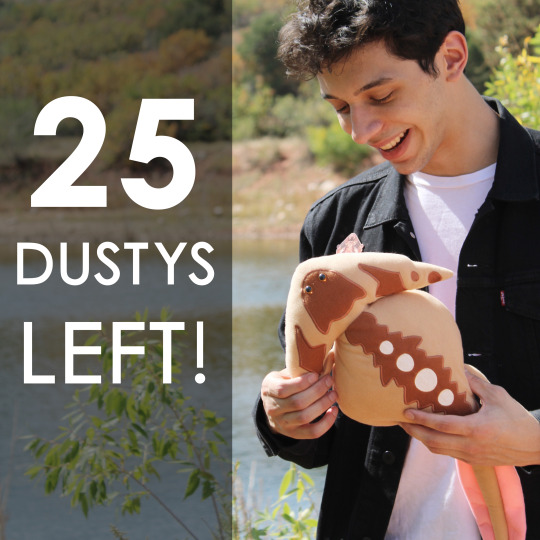
LAST CHANCE to adopt a huggable Permian fossil! https://paleopals.square.site/
Understanding the Ionosphere: NASA’s ICON Mission | March 2017
An infographic detailing the ionosphere, the importance of skywave propagation, and NASA’s upcoming Ionospheric Connection Explorer (ICON) Mission.
Post link
Cecilia Payne-Gaposchkin -Women Who Changed Science. And The World.
Astronomer and astrophysicist who discovered what the sun was made of by applying ionization theory.
Purchase As Wall Art• Purchase As Clothing & Other Products
Post link
Today, September 21, 2015, St. Andrew High School for Girls celebrates 90 years of providing high quality education to Jamaica’s girls. Today, the newly renovated Lab 4 and the main science block will be reopened and christened the Mary Dawson Science Block. Mary Dawson was St. Andrew’s 3rd principal and was instrumental in expanding science offerings for students throughout her time at St. Andrew. Thank you to Jamaican corporate sponsors like Guardian Life and to the donors to the Lab 4 and science block renovation efforts, including the many donors to the Lab 4 Crowdfunding campaign (which raised USD$31,000), for helping to make the Lab 4 renovation happen and for ensuring that current and future students at St. Andrew have the facilities to learn, discover, and be curious…because girls in science matter!
[IMAGE CREDIT: St. Andrew High School for Girls] Pictured above is Guardian Life VP Glendon Gordon presenting a $250,000 cheque for the completion of Lab 4! Receiving the cheque is Science Department Head Franklin Burrell and SAHS Foundation board members Jessica Jones and Dr. Deanna Ashley. Also pictured are Grade 13 (Sixth Form) Environmental Science students: Jadini Thomas, Dominique Ramsay, and Kameron Lindo.
Post link
I am currently a Building Surveyor and 3D Laser Scan Tech in Canada. My first love in science was biology. I loved learning about the workings of the heart and the mechanisms of a plant. Then there was Chemistry, where Mr. Lawson taught how construct an organic equation and how reactive pure sodium gets in plain air.
My interests took me elsewhere, but science at St Andrew developed my questioning mind.The campaign is important because … these girls are positioned to make breakthroughs and contribute to Jamaica as well as the world; but it begins with the nurturing of the questioning mind and SAHS needs help in creating the right environment for the girls, and help with keeping pace with the evolution in methods and technology in science.
Support our efforts: http://www.razoo.com/story/St-Andrew-High-Science-Lab-4-Campaign-Because-Girls-In-Science-Matter/mobile
Our first topic for you, as requested by our readers, is the biology of brains!
Tell us everything you know about brains– how they’re structured, and how they work. A few questions to get you thinking:
- What’s the history of the biology of brains?
- How are brains organized?
- How do brains function?
- How do brains differ across species?
- Where do you think science is headed with regard to the biology of brains?
Note that all of these questions can be answered at many different levels and in thousands of different ways, not to mention that we encourage thinking outside of these guiding questions! We’re just asking you to give us a tiny bit of anything you know.
Again, the rules, for those new to our game:
- Reblog and add anythingthat comes to mind regarding the topic– facts you know, things you learned in school, questions you have, links to an article, papers you’ve read– we mean anything!
- If you don’t think you have anything to contribute, just reblog and pass the thread along to your followers.
That’s it! SciNote will be reading every single one of your responses, and given enough responses, we will combine your contributions, citing your work, in one big comprehensive article to be posted on SciNote.org.

Dear Readers,
Happy 2016! It’s a new year, and SciNote’s excited to try something completely new.
In light of the enormous, amazing, and ever growing Tumblr Science Community, we’ve got an idea: we’re going to take our philosophy that anyone, and everyone, is a scientist to the next level. Let’s put all of our love for science together and tap the collective resource that our millions of brilliant, passionate minds create.
So here’s the idea (and the rules of the game):
Every week, we’re going to post a topic or a question for all of you to discuss. The topics will be pretty general, perhaps something like plants and evolution or biomimetics, and the post might come with a few guiding questions or ideas to get you started.
Then, it’s your turn. Your job is to reblog and add anythingthat comes to mind regarding the topic– facts you know, things you learned in school, questions you have, links to an article, papers you’ve read– we mean anything! It can be as long or as short as you like: you can write paragraphs if you like, but a couple of sentences would also be great. If you don’t think you have anything to contribute, just reblog and pass the thread along to your followers.
You don’t have to be an expert in the subject– that’s the whole point of this! Our goal is just to get ideas and trains of scientific thought bouncing off one another and see where we wind up in the end. It’s like one big Tumblr brainstorm.
SciNote will be reading every single one of your responses, and given enough responses, we will combine all of your contributions, citing all of your work, in one big comprehensive article to be posted on SciNote.org.
This is as much an experiment for us as it is for you. We’re curious to see how this goes, and what you come up with. What do you say, Tumblr? Are you in?
my library purchased a new copy of this this year! I’m going to try and convince our collections department that actually, this was a Mistake and it should be weeded immediately but in the meantime, please, i need someone to share my pain (Submitted by exhausted librarian)
———————————
this submission is causing me real physical pain like its literally like getting punched in the gut multiple times. i’m assuming here that this was a conscious choice, because i cannot imagine getting a biology book for kids published with this kind of flagrant mistake.
like not to Go Off but first of all this was a science communicator who decided this was a good way to go about talking about mushrooms and fungi because apparently kids can’t understand that mushrooms are a different thing like plants and animals are different things, and then the publisher agreed that yes, this is good, we can totally heavily imply/outright state that mushrooms are plants by putting them on the front and back cover under the words “a book about plants without flowers” and then further imply/outright state that all plants that dont flower (apparently including mushrooms) fall under the ‘gymnosperm’ label, which by the way is another thing: if we’re assuming that the author did this to try to dumb it down for kids because referring to fungi as ‘not plants’ is too complicated, WHY are they using the ‘gymnosperm’ terminology on the back cover and WHY are they applying that term to all plants that don’t flower?? or are they using it as a specific example of plants that don’t flower, in which case it’s a poorly placed description??? like you gotta choose!!! are you gonna be specific or not!!!
also not to be Like That but JUST saying this strikes me as an example of like… very poor attention being given to botany and mycology in primary education. if you came to a kid’s publisher with a book that was like, ‘things that don’t walk: animals without legs’ and it had bacteria illustrated all over the cover and the back cover was like ‘WHAT is the squamata reptile family and WHY don’t they have legs’ i DOUBT that would fly lmao
Lying to kids about science is the absolute worst thing you can possibly do, ever.
This makes me SO MAD.
August 26, 2019
Stop! Treating! Kids! Like! They’re! Fucking! Idiots!
Yes, obviously phrase things in a way that they can understand, but stop dumbing shit down and making outright false statements just so those poor dumb widdle kids can understand uwu
Teach kids big words! Teach them the difference between one thing and another! Stop churning out garbage and treating it like gold!
When I was in 3rd grade, I checked out a literal field guide to mushrooms from my school’s library (like, a real field guide adults would use), and I read that thing cover to cover. It was so interesting! It was my favorite book I read in elementary school! I loved it!
Then I had to sit in science class and “learn” that mammals were mammals because they had fur/hair (whales have eyelashes if you look close!), and that atoms looked like a nucleus with electons orbiting around them like a mini solar system. Then in high school I learned that everything they said in elementary school was wrong, and I had to start all over! I was pissed off!!! Then I got to college, and learned everything from high school was wrong, too!
We owe kids better than that! Stop lying to them!!!!
!!!!!
August 26, 2019
Post link



